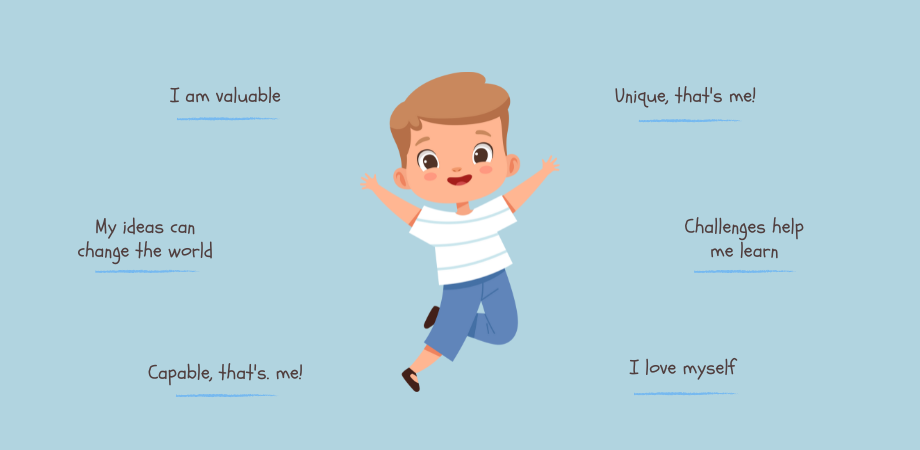Nourishing Robust Increase: A Manual to Children’s Well-being and Progress
Introduction
As providers, mothers and fathers, and also custodians, nothing ranks higher than the overall health and development of children. From birth until they grow into teenagers, kids experience significant physical, cognitive and emotional changes. During these years of their life they create the basis for living well throughout their lifetime. In this all-embracing manual we shall examine numerous aspects of children’s health as well as growth; thereby giving ideas, hints along with resources which will back up their development at each stage.
- Physical Health – Laying Stronger Foundations
Physical wellbeing is a kid’s general welfare basis. To ensure that children have good health care providers need to make sure that they are fed correctly, exercise regularly enough sleep hours as well as take preventative measures like immunization against diseases.
– Nutrition: A healthy diet should be one that is rich in fruits vegetables whole grain products lean proteins and healthy fats this is because they are essential for growth in children. Therefore it would be advisable if parents can encourage their children to cultivate good eating habits from an early age by offering different types of nutritious food stuffs involving them meal planning and preparation processes too.
– Physical Activities: Consistent exercise is important for the physical health of children. It helps in growth of strong muscles and bones while maintaining a healthy weight as well as enhancing general cardiovascular fitness. Set aside 60 minutes each day for moderate to vigorous intensity activities like aerobics or strengthening exercises that involve different parts of the body such as arms, legs, chest etcetera.
– Sleep Hygiene: Restful sleep is necessary for kids’ development, mental health and learning. You can achieve this by establishing regular sleep patterns through bedtime routines; creating an environment conducive to relaxation without disturbances like noise or light; ensuring appropriate duration of rest depending on their age bracket i.e., 10-13 hours per night among school going children aged between six and twelve years old.
– Preventive Healthcare: Children need to visit their pediatricians or family doctors regularly even when they are not sick. These checkups help monitor their growth progress, detect any medical issues early enough before they become serious problems, provide immunizations against diseases according to national schedules thus preventing them from spreading further within communities where people live closely together e.g., schools; also offer preventive screenings which may catch illnesses at stages when treatment is still effective. Therefore parents should follow recommended routine check-up dates given by healthcare providers but should be quick in seeking medical attention whenever there is a concern about child’s health.
- Cognitive Growth: Cultivating Young Minds
Cognitive development involves the growth and maturation of cognitive processes such as attention, memory, problem-solving and language skills. It is important to provide for bright environments and involve children in interesting activities since it helps foster their cognitive development thus laying a foundation for academic achievement.
– Early Learning Opportunities: Foster curiosity, exploration and discovery with toys, books, puzzles or games that are suitable for their age; encourage problem-solving abilities, critical thinking skills as well as creativity. Involve them in activities which engage all five senses while giving room for hands-on learning experiences.
– Language Development: Inculcate a reading culture from an early age so as to expose kids to different words and sentence structures. Encourage conversations among peers or adults; storytelling sessions where they can make up plots themselves will also enhance communication skills besides fluency in languages.
– Educational Enrichment: Enhance knowledge acquisition process by making educational materials readily available like books, apps on electronic devices such as tablets; educational shows aired via television stations should not be left out too plus practical lessons at school level could do wonders towards this end. Create passion among learners through ensuring that what is taught is fun-filled enough while connecting with various areas of children’s interests and talents.
– Critical Thinking Skills: They should promote curiosity in children by asking questions themselves, seeing things from different angles and analyzing the world around them. Entertaining debates, engaging in conversations and solving problems that require reasoning abilities while considering more than one perspective should be done.
- Emotional Well-being: Cultivating Healthy Hearts and Minds
Emotional well-being greatly affects a child’s health overall; it also shapes their self-esteem, resilience levels and how they relate with others socially. To promote emotional wellness, create an atmosphere of support where every child feels loved, valued and understood.
– Emotional Expression: Let kids express their feelings openly but constructively too so teach them how best can they manage or cope with such emotions through validation, empathetic listening as well as necessary advice or assistance offered.
– Positive Relationships: Establishing good rapport with young ones requires trustworthiness, respectfulness and unconditional love towards them. Spend time together doing meaningful activities like talking heart-to-heart then demonstrate care by holding or kissing them frequently for example.
– Emotional Management: Educate children on how to regulate their emotions and how to deal with stress. This can be done through things like teaching them deep breathing techniques, mindfulness, relaxation methods or positive self-talk. It is important also to guide them in identifying what they are feeling, understanding what sets them off and coming up with healthy ways of coping.
– Building Resilience: Help kids embrace challenges as opportunities for growth while bouncing back stronger each time even when faced with adversity. Maintain a mentality that values effort over results, persistence over perfection, learning from failure rather than avoiding it altogether.
- Social Skills: Navigating the World with Confidence
Social skills are essential for a child’s development because they enable them build relationships, express themselves better and fit into different social setups. Children need chances to mingle; hence it is crucial that we teach them these vital abilities necessary for thriving in any social setting.
– Playtime and Peer Interaction: Encourage children to participate in free play where there are no set rules so as not only allow them practice being flexible but also learn various problem-solving strategies through negotiation with others around common interests within different environments like parks or homes during visits among friends where games may occur which require turn-taking while sharing resources thereby fostering cooperation even if conflicts arise since play acts as a mirror reflecting real life situations that demand resolution
– Communication Skills: One way to teach communication skills is by making kids understand how to listen actively, use body language and words for communication, speak their minds and emotions clearly as well as get what social cues mean. Open conversation should be embraced where they also learn assertiveness, respect while talking to others and empathy while sharing with others.
– Empathy and Compassion: You can foster compassion in children by helping them appreciate other people’s feelings or points of view; being kind to others and showing concern for them; doing acts of kindness or generosity towards those who need it most. Be an empathetic person yourself in front of the child and let it see how this trait can be applied through day-to-day interactions.
– Conflict Resolution: Teach children positive methods through which they can solve conflicts among themselves or address interpersonal issues such as using statements that begin with “I”; active listening where one tries to understand another’s position; searching for common ground before coming up with mutually beneficial solutions. It is important that kids are allowed express what they want firmly but still respecting the other person’s point of view.
Conclusion: Supporting Children’s Well-being
In conclusion, taking care for the health and growth of children involves treating every aspect of their being: physical, mental, emotional and social. We can help kids thrive and achieve their full potential by creating a supportive environment around them; fostering healthy habits as well as promoting positive relationships with others through different experiences.
As parents or caregivers we are the main architects for our children’s lives; what we do now will determine who they become later on in life. Today’s investment into their well-being sets stage for brighter future where resilient empathetic individuals who have capacity to overcome any obstacle come into being and contribute meaningfully towards bettering world around them.


























